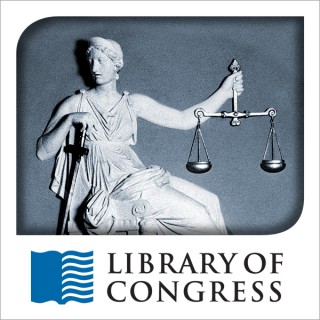Podcast appearances and mentions of Vicki C Jackson
- 4PODCASTS
- 5EPISODES
- 1h 6mAVG DURATION
- ?INFREQUENT EPISODES
- Oct 14, 2020LATEST
POPULARITY
Latest news about Vicki C Jackson
- Civic Education and Faultlines of Constitutional Democracy Balkinization - Apr 24, 2023
Latest podcast episodes about Vicki C Jackson
In this week’s episode of Politics In Questions, Judith Resnik joins Julia, Lee, and James to consider how a democracy should select its judges. Judith is the Arthur Liman Professor of Law at Yale Law School and the Founding Director of the Arthurs Liman Center for Public Interest Law. Her scholarship focuses on the relationship of democratic values to government services; the roles of collective redress, class actions, and arbitration; contemporary conflicts over privatization; the relationships of states to citizens and non-citizens; the forms and norms of federalism; and equality and gender. Judith has written numerous books and articles, including: Representing Justice: Invention, Controversy, and Rights in City-States and Democratic Courtrooms (with Dennis Curtis, Yale University Press, 2011); Federal Courts Stories (co-edited with Vicki C. Jackson, Foundation Press, 2010); Migrations and Mobilities: Citizenship, Borders, and Gender (co-edited with Seyla Benhabib, New York University Press, 2009); “Punishment in Prison: Constituting the ‘Normal’ and the ‘Atypical’ in Solitary and Other Forms of Confinement” (with Hirsa Amin, Sophie Angelis, Megan Hauptman, Laura Kokotailo, Aseem Mehta, Madeline Silva, Tor Tarantola, and Meredith Wheeler; Northwestern Law Review, 2020); “(Un)Constitutional Punishments: Eighth Amendment Silos, Penological Purposes, and People’s ‘Ruin’” (Yale Law Journal Forum, 2020); and “Collective Preclusion and Inaccessible Arbitration: Data, Non-Disclosure, and Public Knowledge” (with Stephanie Garlock and Annie J. Wang; Lewis & Clark Law Review, 2020).How should a democracy like the United States select its judges? Why do we need judges in the first place? How do we ensure that the president and Senate appoint good judges? Is there a single best way? Or does the ideal process change across time? And what reforms can address the dismal state of today’s confirmation process? These are some of the questions that Judith, Julia, Lee, and James ask in this week’s episode. Show NotesJudith Resnik, “Judicial Selection and Democratic Theory: Demand, Supply, and Life Tenure,” Cardozo Law Review Vol. 26, no. 2 (2005).
Panel: Who's Afraid of Substantive Due Process?: Original Meaning and the Due Process of Law
Conventional wisdom holds that the original meaning of the "due process of law," as used in the Fifth and Fourteenth Amendment, is procedural - forbidding deprivations of life, liberty or property without appropriate procedural safeguards and unless they are pursuant to a duly enacted law governing the conduct giving rise to the deprivation. Recent originalist scholarship, however, calls this view into question, arguing that a thicker and indeed "substantive" understanding of due process is justified by a careful reading of the constitutional text and history. This panel will explore and critique these new arguments.Welcome:Hon. Lee Liberman Otis, The Federalist SocietyIncoming AALS President Vicki C. Jackson, Harvard Law SchoolFeaturing:Randy Barnett, Georgetown University Law CenterJohn Harrison, University of Virginia School of LawNathan Chapman, University of Georgia School of LawRyan Williams, Boston College Law SchoolModerator: Christina Mulligan, Brooklyn Law School
Panel: Who's Afraid of Substantive Due Process?: Original Meaning and the Due Process of Law
Conventional wisdom holds that the original meaning of the "due process of law," as used in the Fifth and Fourteenth Amendment, is procedural - forbidding deprivations of life, liberty or property without appropriate procedural safeguards and unless they are pursuant to a duly enacted law governing the conduct giving rise to the deprivation. Recent originalist scholarship, however, calls this view into question, arguing that a thicker and indeed "substantive" understanding of due process is justified by a careful reading of the constitutional text and history. This panel will explore and critique these new arguments.Welcome:Hon. Lee Liberman Otis, The Federalist SocietyIncoming AALS President Vicki C. Jackson, Harvard Law SchoolFeaturing:Randy Barnett, Georgetown University Law CenterJohn Harrison, University of Virginia School of LawNathan Chapman, University of Georgia School of LawRyan Williams, Boston College Law SchoolModerator: Christina Mulligan, Brooklyn Law School







